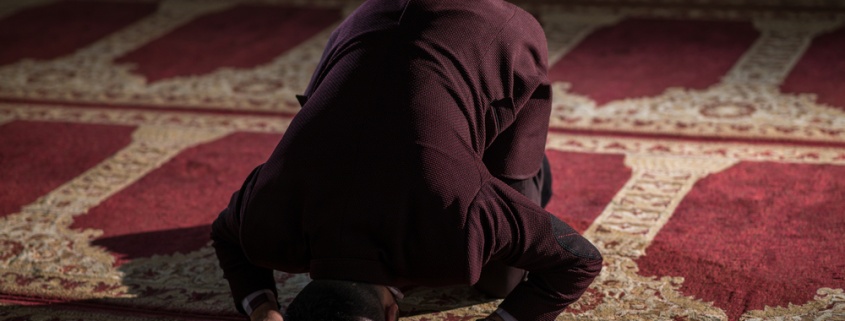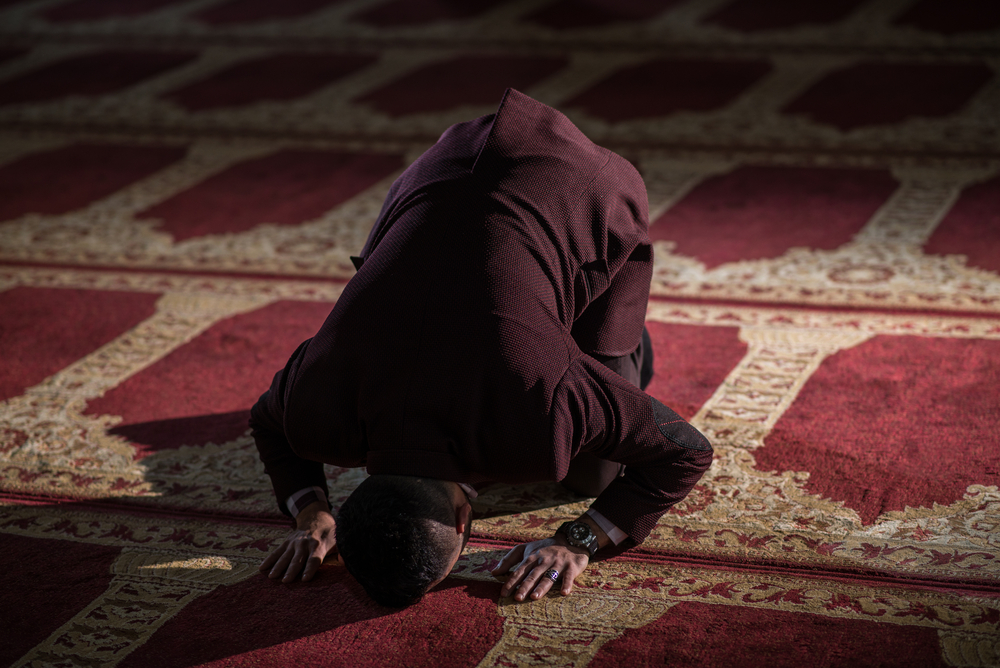The Challenges of Being an Imam in America
I’ve served as an Imam of a masjid for more than twenty years. During that time, I’ve made a basketful of observations based on my own experiences and those of many other imams around the country about the challenges we all face as imams in America. In the short time that I served on the executive committee of NAIF (North American Imam’s Federation), I gained an even broader and deeper insight into these challenges and how imams are generally treated by the people and communities who they serve, by the boards and committees that tend to govern them, and by the general public.
The topic of imams in America is a touchy subject and wrought with controversy, denial, and silence, which is why not a lot is written about imams other than what we find in our classical texts. However, in terms of contemporary analysis of everyday ups and downs, the tremendous variation of challenges they face, the increasing workload, and the sometimes unreasonable expectations that people have of imams, these are issues that we as Muslims tend not to publicize too much. We whisper about it but we don’t talk about it. When we hear about imams these days it is often in a critical context deploring what our imams are not doing, or emphasizing what they need to do to stem radicalism in our youth, and where they are failing, rather than anything about what they face in the course of performing their duties and whether or not they have the resources and freedom to come up with solutions.
Most imams I know are dedicated servants who try their level best to rise to the challenges and responsibilities of their office. Professional restraint dictates that an imam will muffle his complaints if he has any. Mainly, because imams tend to be patient. Another reason is that he knows complaining too much could easily cost him his job. However, privately, many imams often speak of having to choose between their ethics and their paychecks. Many imams feel they are hamstrung, but they still have families to feed. I know it sounds ugly, but it’s all too real.
Why this article? Why now?
These are challenging times for American Muslims, and for America’s imams, these challenges are amplified. There is an increased amount of anti-Islamic sentiment in the air, mosque vandalism is on the upswing, there are concerns and accusations of radicalization in our nation’s mosques, and confusion and a lack of direction setting in amongst many of our American Muslim youth.
In fact, one of the primary job requirements for imams today is that they can somehow help inspire, energize or save the youth. Muslim Americans are without a doubt, in a period of change, a period of challenge and a period of potential growth or circular stagnation. If our mosques and Muslim communities can be considered to be the heart of Muslim America, then the imams of these mosques, their condition, their having the right tools, and their independence to lead people, and offer scriptural solutions does matter. This is not the time for us to sidestep the issue of empowering our imams so they can serve our communities better. There is simply too much at stake.
We are all coming to realize that an imam’s duties and functional importance to the community does not end with the closing salaams of the prayer. Although many imams by their job description only serve in leading the prayers and delivering the Friday sermon, for many others, it’s being on call for 24-hours a day, 7 days a week. It’s keeping people’s darkest secrets and helping them wrestle demons. It’s being a father figure for those who do not have fathers or being the one who takes the time to listen to the elderly Muslimah who doesn’t have family or helping the recent refugee who might be having faith challenges. It’s being a friend to the children, someone they can trust and can confide in. it’s being the face of the community to the general public.
These are the real world imams, the ones who stand post in our nation’s masaajid and along with our scholars, are on the front line against the ignorance of religion, religious extremism, misconceptions about Islam, and theological assaults on our faith. The imams are entrusted with maintaining the required standards of Tawheed [islamic monotheism], and to protect the faithful from Kufr [heresy], Shirk [polytheism], and from speaking about Allah that which is not true, and is blasphemous.
Yet, despite the increased burdens that many imams have to bear, they are sometimes handicapped in the performance of their duties outside of leading the prayer. Sometimes they are manipulated by others and used as pawns in internal mosque politics, and sometimes imams themselves are oppressed and suppressed. Many imams are notoriously limited in what type of leadership they can provide and how candid they can be in addressing problems within the community or in speaking about things that affect the community or that is affecting our nation.
Many of our nation’s paid imams are limited to what extent they can independently interact with other imams and communities. A lot of this has to do with the fact that American Muslims are still learning about how religious communities work in America. There is still some uneasiness. Some boards of directors of masaajid are a little leery about giving an imam too much breathing room. There is always the risk of an imam becoming too popular or being too outspoken or stepping on the wrong toes in the community. There is always the risk (God forbid) of an imam making a mistake. Granted, these are legitimate fears and a part of growing pains. Nevertheless, some fears have to be overcome before we can make progress.
Mosque leaders should give imams greater autonomy to shepherd their communities according to their own knowledge, their relationships with the people in the community, and their experience, and not based upon any national consensus or pre-scripted role. This will require a leap of faith and a couple doses of sheer pragmatism.
Signs of this imbalance are self-evident. Our nation’s imams are conspicuously absent from speaking on behalf of or representing their flocks in the public eye. They are lauded for their melodious recitations of the Quran and their beautiful sermons, but once they step out of the mosque — sometimes, even while still in the mosque — their voices are muted. American Muslims need to be represented by American Imams, not just our political leaders.
Mosque administrations should allow imams greater latitude in assuming their rightful roles as stewards of our faith and not silence them or control what they can or cannot say. Quite frankly, America is growing weary of listening to American Muslim political leaders and activists; people want to hear the spiritual side of what we and our faith has to offer, and this can be done more effectively by our imams than anyone else. There is no more legitimate voice than the voice who delivers the Friday sermon every week.
There is growing evidence that some communities and mosque administrations are taking a broader, more principled approach as far as imams are concerned. Some communities are placing greater trust and confidence in their imams, and giving them room to learn and grow. Remember, we are still relatively new at this. Not only is every congregation different and unique; every region, city, and neighborhood is different with its own needs, particular challenges and distinctive social personality as it relates to their surroundings. The imam needs to be a reflection of that and be able to navigate the many nuances of his religious and social environment.
Imams are important, they mean something, and now is not the time for our imams to be silenced, hamstrung or prevented from providing the precious knowledge of the Book and the Sunna to their communities in its appropriate and specific doses. That’s like telling doctors that they cannot make their own diagnosis’s of their patients and can only treat certain approved diseases. Spiritual health is just as important if not more important than physical health.
This article is not meant as an indictment of the systems of governance at our nation’s masaajid, nor is it a means of merely garnering sympathy for our American imams. I simply want to bring to people’s attention some of the challenges of imams in America and the conditions in which many imams function so that at least we can begin a conversation which would lead to a better understanding. This is a topic that warrants much more discussion than I afforded it here. Hopefully, some eyes were opened but we’ve still got some ways to go. I’ve only scratched the surface so far, but we have to start somewhere.
American born Luqman Ahmad is a Sunni Muslim Imam. He is the son of converts to Islam, educated at Omdurman Islamic University in the Sudan. He is a Philadelphia native, a writer, and a consultant. He has been a full-time Imam of a mosque for two decades and currently, he delivers the Friday sermon (khutba) at the Islamic Society of Folsom in Folsom California. He is a former executive committee member of the North America Imams Federation, a founding member of COSVIO, (Council of Sacramento Valley Islamic Organizations), and the author of the new book “Double Edged Slavery “, a critical and authoritative look at the condition of African American and convert Muslims in the United States. He also authored the book, “The Devils Deception of the Modern Day Salafiyyah Sect”, a detailed look at modern-day extremist salafiyyism, the ideology which in part formed the mindset of ISIS. He blogs at, imamluqman.wordpress.com, and can be reached at imamabulaith@yahoo.com.


















2017
3,515 views
views
0
comments